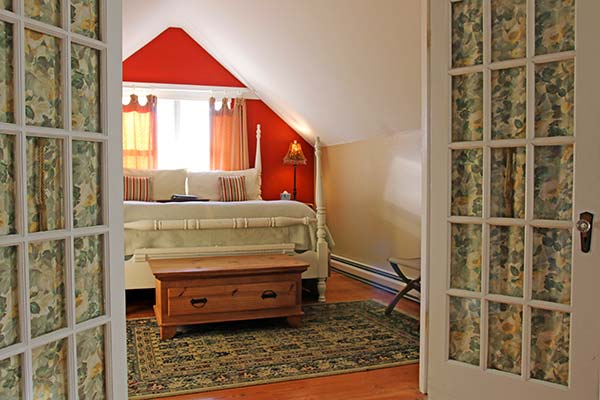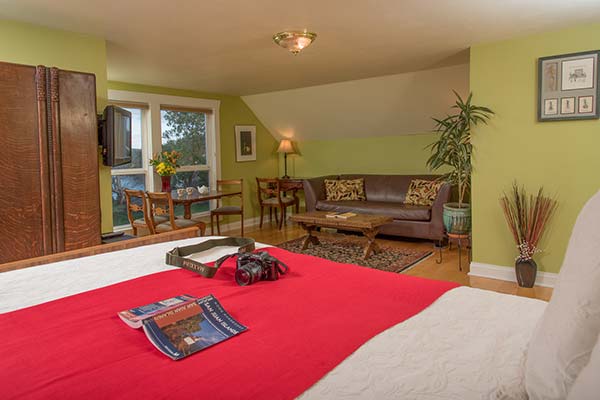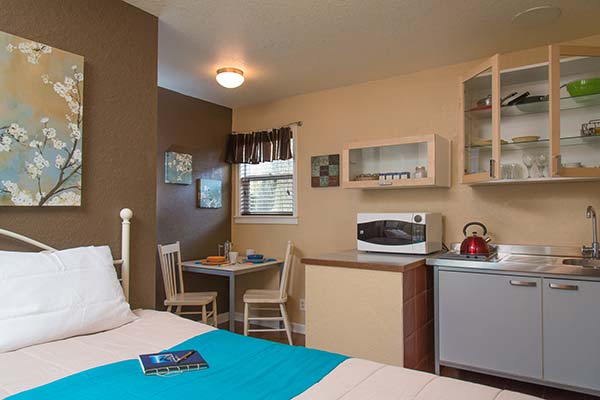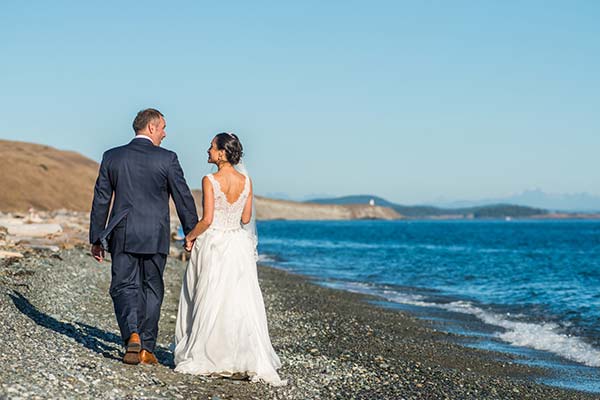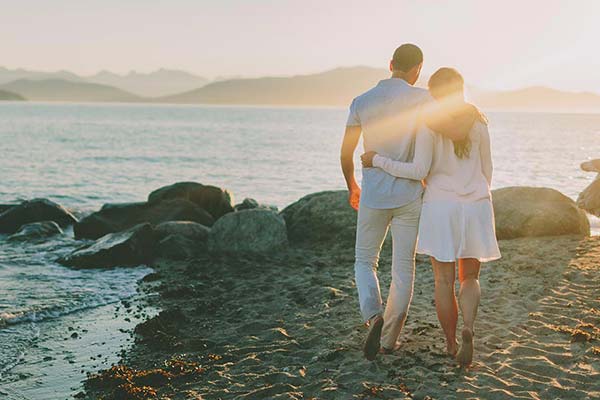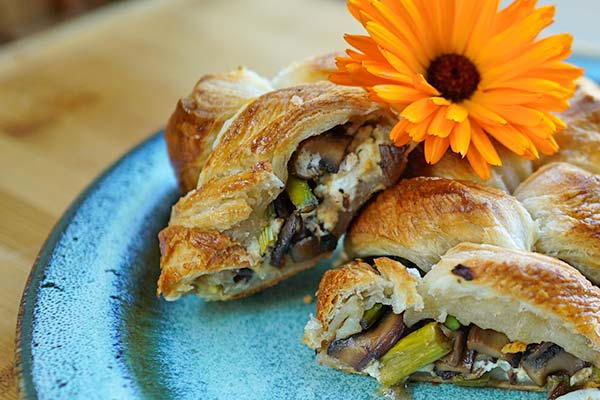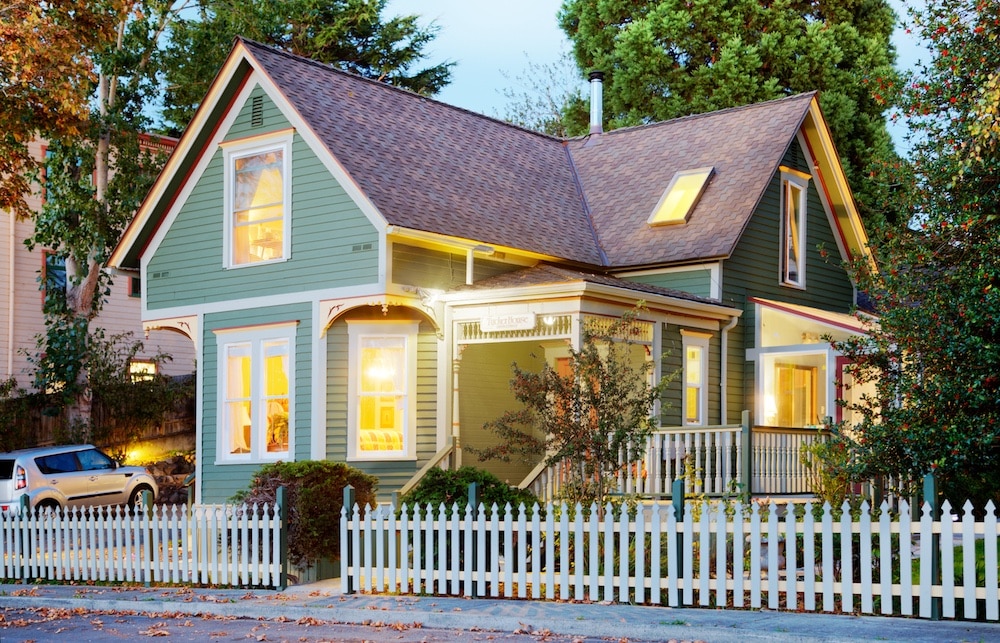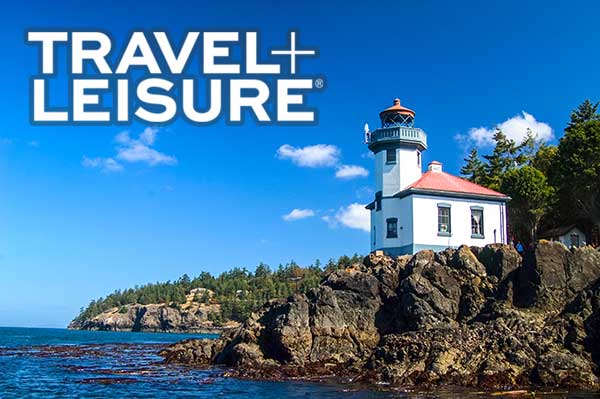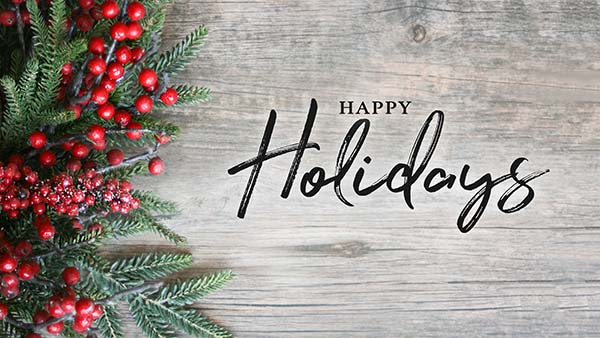
San Juan Island boasts beautiful scenery, ideal lookouts for whale watching, and wonderful restaurants, shops, and galleries. However, it also boasts some history that you might not have known about. There is an interesting parallel of American and English history on San Juan Island that all goes back to 1859, when American and Great Britain agreed to a joint occupation of the island. With this agreement came the separation of groups, one on either side of the island. Thus, the American Camp and English Camp were born. Here is what you need to know about this unique island history involving the American and English Camp on San Juan Island!
The History of the Joint Occupancy of San Juan Island
English Camp on San Juan Island
After British and American governments agreed with the joint occupancy of San Juan Island, the Royal Navy began looking for a station for the British Royal Marine Light Infantry. The site was selected on Garrison Bay, which was 15 miles northwest of the American Camp, on the opposite end of the island. The bay shore was well-sheltered with plenty of grass and water and included an 11-mile trail to Hudson’s Bay farm at Bellevue. In 1860, the British marines landed with the materials to build a storehouse and other important facilities. A commissary was constructed, along with barracks and cookhouses, and then a garden was planted; in its place today is a formal garden. In 1866, the English Camp on San Juan Island was at its peak, and the following year, new quarters were constructed for a new captain, William Delacombe. A few years later in 1872, the English lost command of the island and departed, leaving behind their home for the Crook family, who had purchased the site from the United States government. The Crooks then occupied many of the structures at the English Camp on San Juan Island for over 30 years.
American Camp on San Juan Island
The American Camp was originally slated for a grassy slope 200 yards from the shoreline of Griffin Bay. Here, Captain George E. Pickett and Company D, 9th Infantry settled in this area briefly in 1859, a year before the British would arrive at their English Camp on San Juan Island. The American military presence on the island was established at that time and lasted for around 14 years. However, the location shifted just five days after landing. The American Camp was moved to the north slope of the ridge just north of the Hudson’s Bay Company barns. Large tents were set up, along with clapboard buildings that included a hospital, barracks, and laundress and officers quarters. A fortification was constructed on an eastern ridgetop with a view of both the strait and bay, and this post continued to be manned through some of the most tumultuous times in American history. The brave American troops endured terrible quarters, bad food, and isolation; some committed suicide, while others deserted. Yet, most endured and contributed to the peace that still reigns on San Juan Island.
The Pig War
Though the American and English Camp on San Juan Island got along well for the most part, a crisis surfaced on June 15, 1859, when American Lyman Cutlar shot and killed a company pig rooting in his garden. This was during joint occupancy of the island, though the camps had not officially yet been established. As a result of the pig shooting, British authorities threatened to arrest Cutlar and evict the Americans from the island as trespassers. At this point, Company D, 9th U.S. Infantry under George E. Pickett (of later Civil War fame) was brought to San Juan. Pickett’s 64-man unit landed on July 27. Tensions were mounting, and a war was slated, but the current United States president James Buchanan was alarmed of the issue and sent some men to try to calm the situation. In the end, the potential Pig War did not occur, and things were settled, the two camps formed on opposite ends of the island. In 1871, the Treaty of Washington decided that the land would remain in international arbitration, and just a year later, the land was officially given to the United States.
Modern Day American and English Camp on San Juan Island
Each year at the English Camp on San Juan Island, there is an encampment sponsored by the San Juan National Park, that features reenactors, the celebration of peace, and camp life demonstrations of music, blacksmithing, spinning and weaving, cooperage, and carpentry. Period uniforms will be donned by reenactors and black powder rifled musket demonstrations will take place. There will also be a candlelight ball on Saturday in the English Camp barracks with music, dancing, and refreshments. This year’s event will take place from July 29-31, and admission is free!
You can also go hiking at the American or English Camp on San Juan Island during your visit if it does not fall on those dates in July. The American Camp National Park offers many trailheads such as Jackle’s Lagoon Trail, which travels through rich cedar forests before heading down to the lagoon.
After Visiting the English Camp on San Juan Island
During your visit to the American or English Camp on San Juan Island, stay at the Tucker House Inn in Friday Harbor for a lovely island retreat. Our peaceful bed and breakfast offers a relaxing oasis, wonderful night’s sleep, and some gourmet breakfast in the morning. You can also check out the adjacent Coho Restaurant for a delectable dinner after your hiking and touring adventures. For more to do in the San Juan Islands, download our free vacation guide!

